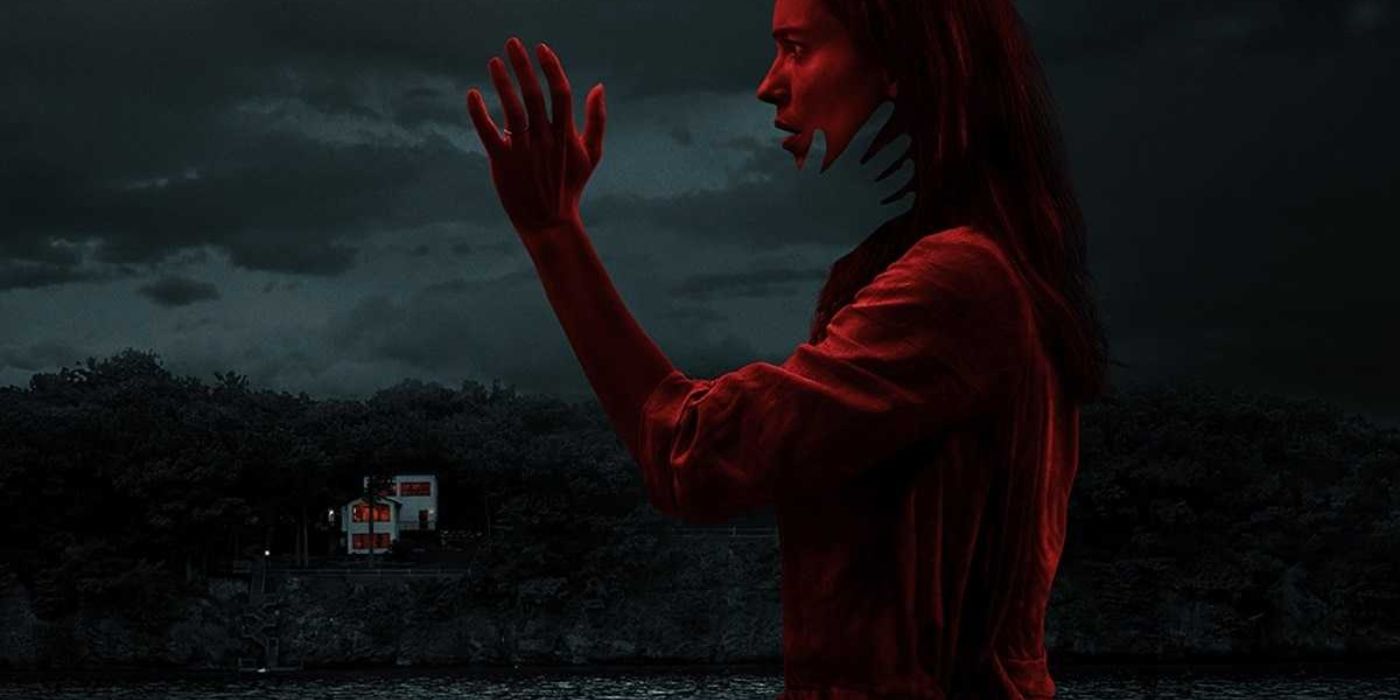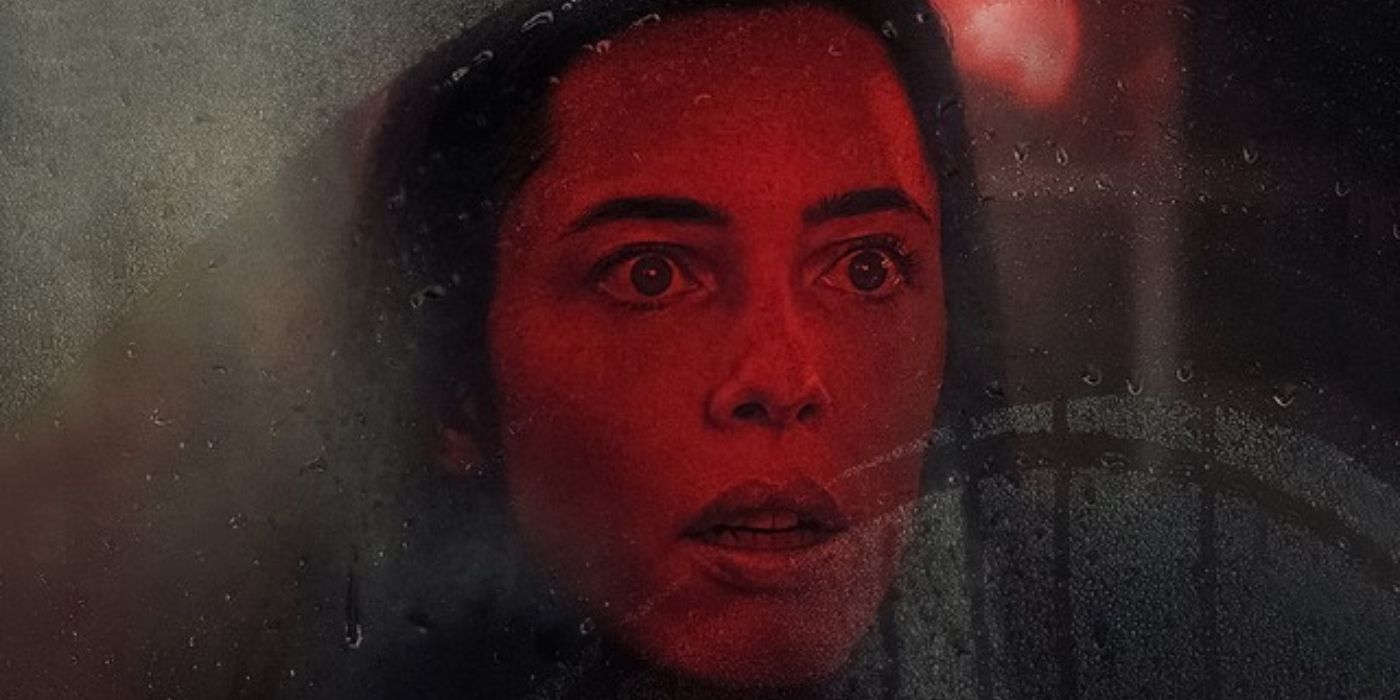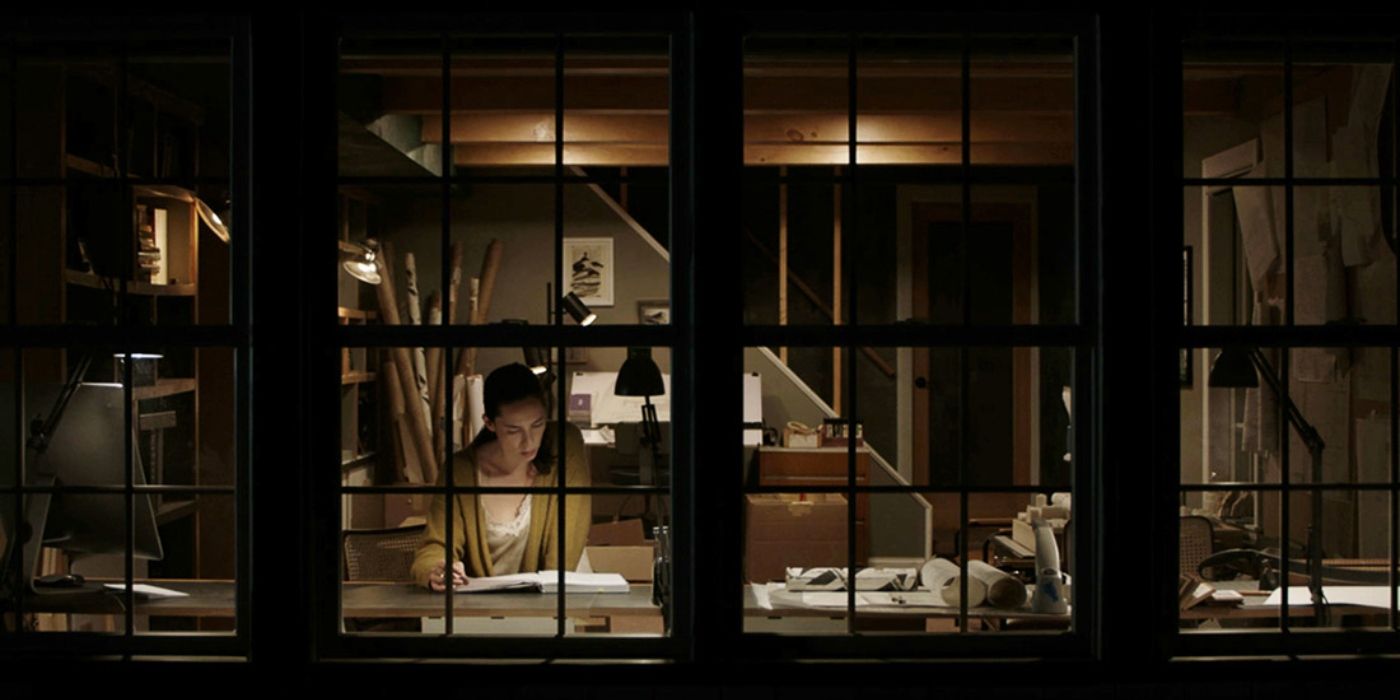The Night House is a surprisingly somber and subversive horror film that delves into the intimate terrors and questions found in grief. Directed by David Bruckner, the film examines what exists outside of this life and the possibility there might be nothing -- which might be even scarier. Focusing on Beth (Rebecca Hall) as she tries to deal with the sudden loss of her husband to suicide, the film explores some heady and complex topics while never losing sight of the potential for the supernatural explanation just around the corner.
While The Night House can be described as a "haunted house film," Bruckner described it as "a very deep deconstructive take on the idea of the supernatural as a whole." During an exclusive interview with CBR, Bruckner discussed what appealed to him most about the horror film's concept and how its central questions on life and death still linger in his mind.
"I think from the jump, when I read Ben Collins and Luke Petroski's script [for The Night House], I just thought, 'This is great,'" Bruckner shared. "It purports itself very open to elaboration. We can do something that... Relies on classic tropes. It is a haunted house film, to some degree, but also a brain teaser, a mind-bender if you will. My favorite films in general sort of tease the line between reality and the imagination, between describing the internal state of a character's mindset and what external obstacle that they might have to face. I love the ambiguity of that. So this just felt like it was dense and complex. From the beginning, it seemed like we could very easily overdevelop it into something that was a bit broader." However, Bruckner and the film's producers resisted that temptation. Bruckner recalled how early in the production, they agreed on the importance "to preserve a lot of the inherent, and I'd say delectable, nuances and complexities and contradictions of Ben and Luke's script."
"I felt there was a space there for the audience and invite them into the maze with us," the director added. "That was true to Beth's experience, to the experience of the lead character and what she was spiraling with... So we embraced the confusion openly. I think it was about aiming for a place where you could sort of be stuck between two forces and two reads on what was happening in between life and death, between a knowing sense and in a continuing question. There are certain things that I don't feel like we have the answer to. We could easily pack it with a punctuation mark and a firm explanation to proceedings down, but I didn't think it was in its spirit. Hopefully, at the end of the day, it's just a really scary movie that keeps you thinking. If you're troubled a little bit by it, then you're having a little bit the same experience I had."
Reflecting on the strengths of the script and how it forced him to confront his world views, Bruckner admitted, "I'm actually comforted by supernatural mythology. I'm comforted by the idea that there are spirits. That you could view the afterlife with purpose, or yearning, or searching, or that there is a sense that we carry on to one degree or another. We had a phrase, 'What's more frightening, the idea that ghosts exist, or the realization that they don't?' That absence, the idea that in the blink of an eye you cease to exist, there is nothing on the other side, is not something that I let in very often as a person. Seeing that in the script and discovering that that's in a large way what Beth is reckoning with... It just gave me pause. I feel like it's something to be reckoned with."
Having previously directed segments of the horror anthologies Southbound and V/H/S -- as well as the feature-length The Ritual -- it's a genre that Bruckner speaks of fondly. "One thing I really love about the genre is that it gives you permission to play in various levels of surrealism," he shared. "I don't know why we need our movies to be so literal all the time, but I think tropes... They have a shared expectation. And if you have an expectation, you can generate suspense. The filmmakers can't surprise you unless they have a sense of what you think might happen necessarily."
"So, hopefully, you go see a movie about a night house. There's a creepy house, shot at a house on a lake. You go, 'Well, there's a possibility the house is haunted, and I'm going to have to endure this as an audience member and I'm down for it.' So that's a place to begin and to start. And then from there, hopefully, the film can tease your expectations in different degrees and both satisfy those expectations, but also contradict them in different ways. So I like that the potential for familiarity in the genre. It's something that you can mess with and tease out in different ways. And I'm just a huge fan. Some of it is I like a good spooky haunted house movie. I like to be watch something seeping into the atmosphere. That knows when to drop the score out, and music out, and have me sit on pins and needles and silence."



